From the Files: One last look at being a vet student
| August 6, 2023 | Posted by Melinda under Uncategorized |
When I was a vet student (mostly in my clinical year) I kept a notes on things for the blog – some of which I published immediately, and some that I knew I wanted to remember for “someday” but it wasn’t the right time to put up on the blog. Now, eight years out I’m clearing out my draft file from vet school once and for all.
Present-day-Mel chimes in occasionally with italics, but the rest of these words is one last visit with *vet-student-Mel
*and a few notes from newly-graduated-Mel from the first time I tried to edit this to post.
What I do good…
I’m told that I’m WAY ahead when it comes to exam room appointments and efficiency, and client communication. I don’t think I’m a natural – I think I’ve worked on it a LOT over the last 8 years and I’m seeing the pay off. I don’t let myself get trapped, I know how to direct a conversation, and my goal is not to waste their time or mine (not an easy feat in a teaching hospital).
However, there were two compliments I’ve gotten recently that really meant a lot.
In the farrier rotation you only get Monday, Tuesday, Wednesday and then they ship you to another equine medicine service for a couple of days (ugh, but worth it to be able to work in the farrier shop). When I introduced myself to the equine med tech as a completely clueless student who would be coming in Thursday, she exclaimed “oh! you’re the student that knows your way around the horse hoof! Bill has been telling us all about you”. That made my day. Apparently the farrier, who is one of the best trimmers and farriers I’ve ever met, had been bragging on me and how well I knew my equine foot stuff :).
The second compliment came from a fellow student, runner, and friend. I asked him whether he was running lately, and told him about my fifty mile run last Saturday. He told me that I “was the most successful person in our entire class in having a life outside of school”. In the class standings I am 113/135, but I have above a 3.0, have never failed a class, and am now earning high marks in clinics. My ability to have a life outside of school and clinics is *probably* due in at least part to how different my goals are from most of my classmates (not aiming for a competitive internship or high end clinic).
Present day Mel: I had forgotten about this encounter until I was editing this post. Ironically at lunch yesterday with my former vet school mentor she told me that out of all the veterinarians and vet students she has ever met I probably do the best at work-life balance that she has ever seen. It was a compliment that meant a lot to me. It means that maybe I’m getting something right in this one very short life I get to live on this earth.
…and what I don’t do well
Successfully completing endurance events is about staying in the right “zone”. Completing my fifty mile run last Saturday was dependent on me being able to maintain my effort in a narrow window between moving forward efficiently and not feeling as if I was expending a large amount of effort for that forward movement. That isn’t to say that parts of the race wasn’t really hard, but during those times I was making adjustments to try and move me back to my “zone”. The same is true of riding a horse in endurance – except it’s more challenging since you are predicting what they are feeling.
I use zones rather than pace to direct my training too. Easy/Recovery runs should be “green” – absolutely no effort at all. If they start to creep towards yellow,I need to immediately reduce speed. Tempo should be yellow at the beginning, and progress to orange/red. HIIT runs should be RED during the sprint portion and green during the recovery.
In clinics I’m still allowing myself to get unduely stressed about things out of my control. I’m drifting out of my “zone”. I’m getting better at recognizing it when it’s happening, and predicting situations that are likely to cause it to happen, but right now not being able to instinctively stay within “my zone” is my biggest weakness in clinics.
Too easy is as bad as too hard – there’s a sweet spot where I feel productive, am learning what I need to learn, but am also not flooding my body and mind constantly with cortisol. I didn’t always know how to pace myself through a long run, or pace a horse through a fifty. Staying in the zone takes practice, and I still have 286 days to practice it in my career! (Now being out of clinics for just over 3 months I can say that most of the time I DO stay “in the zone”. Don’t know whether to blame it on the pregnancy hormones – I’m one of those people who is actually calmer and LESS moody pregnant – or if it’s knowing that for better or worse the decisions are *my* decisions, which is something I’m very comfortable with).
What I’ve learned…..
- I would absolutely chop a leg off of an animal (dog, cat etc.) – they do REALLY well on three legs. Probably wouldn’t go to great lengths to do a limb sparing procedure in one of my animals.
- I would absolutely cut an eye out – especially in a horse. Most of them do just fine, and not having to go through the cycle of pain and inflammation and awfulness of eye meds seems to be a relief for both the owner AND the patient.
- I’m not as hard-nosed about not doing colic surgery on my horses. Definitely a case-by-case basis, but not all colic and their surgeries are created equal.
- Procedures I’ve learned at school, I take with a grain of salt. I know that what I’m being taught in the “ivory tower” isn’t always the best way to get it done in the field for a variety of reasons. However, I recently watched a vet (non-school affiliated) that was electroejaculating bulls as a follow up to a breeding soundness exam. He couldn’t get a semen sample. I don’t want to go into the details, but I learned that sometimes I *do* know more than the vet whose been out for 30 years, and I’ll always wonder whether if I had tried the tricks I learned in school if I could have gotten a sample, and perhaps those bulls would have had a chance to be evaluated and not sent down the road in a trailer.
- Why yes the cops will pull a vet truck over. Expired registration :). (this happened during one of my externships)
- Externships are a lot about personal development. You don’t get that in school. It’s stepping out of the box I’ve been in for three years. I see now why people often have a hard time for the first couple years out. It’s hard enough stepping back out into the world after being out of it for three years (although you Dear Reader have kept me connected and focused and grounded). I can’t imagine trying to orient myself with the identify of vet and the tremendous responsibility of that without having some experience outside of school. (Present day Mel: Thank God I took five years off between degrees to work in an unrelated field and get management experience) It’s also a nice comparison to see where I am now compared to undergrad. I really am a different person. I do stuff. I don’t stay locked up in my room reading like I did at so many of my undergraduate internship experiences. I’m out DOING something either on location, or in the area I’m staying.
- “Equine medicine is actually sorta inspiring…..but by the end I was anxious to move on.” After I finished my first equine externship of my clinical year I wrote that sentence. After I finished my final equine externship ….. I wished I was a decade younger and had a different sort of life where I could have throw myself into the deep end of that kind of medicine. But I’m not, and I can’t. It turns out like anything else, it’s who you are working for and with that really matters in job satisfaction. Present Day Mel: I still believe I made the right decision and I have no regrets.
Where I am *now* (Well, at least where I was a few months before I graduated and not *now*)
The bottom line is that I still haven’t found a good fit in the vet world for me besides endurance.
The quality of life is so poor for all of the vets I have worked with so far. Some have pointed to their giant houses and beautiful properties as evidence of their success, but I see the complete lack of personal life or personal space. For me, no amount of money makes up for that.
I see it happening even now in clinics. Here’s what one of my classmates posted on facebook of her beloved dog who was dying of lymphoma, having only been diagnosed weeks ago:
“Took [name of pet] in yesterday for an ultrasound recheck and CBC, since he has been inappetent for a few days now… [deleted a bunch of updates on diagnostic information]… I was hoping the disease wouldn’t be progressing so fast… but it is… I feel sad and angry that I don’t even get time with him because my rotations have been ones with long days (like medicine… orthopedic surgery now… next rotation is neurology…) and I can’t do anything about it. I spend more time with other people’s pets than my own… and I feel like I just can’t keep it together any more…
The gist of most of the comments? “Welcome to the rest of your life”.
I don’t mind putting in hard work, but the concept that I must completely immerse myself in work that is mostly routine for ten years before having a semblance of a normal life or start to see the pay off is not something I’m interested in.
And that is what it seems clinical practice is.
Fortunately I’m not wedded to the idea that I must do clinical medicine, nor do I have a particular love for the majority of medicine that walks through a clinic door. I love physiology, teaching, technology, and communicating with clients. Only 1 out of the 4 years of veterinary school is about practicing clinical medicine. The other 3 years teach you about biology, physiology, communication, and critical thinking. There’s a lot I can do with that. I’ll graduate being a better manager, a better problem solver, and a better learner than when I went in.
I’ll find a way – whether it’s vetting endurance rides, or getting trained in chiropractic medication, or some aspect of my job – to stay in touch with the parts of veterinary medicine I do enjoy. Which is mostly preventative medicine (I strongly believe once you break it it’s too late), client education, bridging the gap between research and application, and consolidating existing knowledge.
I’ve had good luck in my career so far by picking people I want to work with, not necessary the subject or department, and I did the same for my fourth year. I picked my senior clinics with the following things in mind.
* Rotations that are headed by faculty with a reputation for making student learning a priority and a goal. (This is different than choosing rotations where I would “learn a lot”.) – examples: livestock med, small animal community medicine
* Rotations that I thought would be a lot of fun – examples: fish medicine, small animal community surgery
* Rotations that I thought would allow me to enter a niche in the future or provide specific information I could easily apply if my career path took me a different direction than I anticipated. – examples: shelter med, small animal emergency, derm,
* Rotations that served a selfish interest like farrier shop.
Allow me to be smug for a moment. I stayed away from rotations with a reputation for working their students to the bone with busy work, or services that routinely got referral cases so complicated not even the residents know what is going on. I stayed away from services with a reputation for making their students feel like worthless pieces of crap. A lot of my classmates are pretty miserable right now.
I’m paying a LOT of money for this *experience, and I’ll learn better if I can get some sleep, keep stress under control, work on networking, and not feel as if I’m being exploited.
*Present-day-Mel: I calculated it out and I was paying $2,000 per week for my clinical rotations. I deserved to be learning how to be a doctor and not merely subsidizing the labor force of the hospital as unpaid labor.
I can’t learn everything in a year – so I’m not going to try. I am going to have fun this year, do stuff I might not ever get to do again – like surgery. And when it comes time to graduate and look for a job, I’m going to cast a wide net, looking for a person or a subject that interests me, whether or not it is specifically vetmed or not. (and if it’s a nonprofit or government organization, that could be quite beneficial to paying off my loans!).
I’m burnt out on career advice. The bottom line: I got to vet school on my own, following a path that no one could have predicted, and was far more successful than most people who have vet school as a goal. With that in my back pocket, why would I start listening to other people’s career advice now?
Now, eight years later.
What do I think about this post eight years after I wrote most of these words? I pretty much nailed it.
I think the biggest thing that would surprise my past self (except for the fact that Farley is still sound and kicking up her heels) is that I’m still in clinical medicine. But, I don’t think I would be surprised that I have found a way to do lots of surgery and emergency medicine if staying in that field. Those were the two things I enjoyed most in my clinical rotations. Back then I didn’t think I would ever have the guts or the knowledge base to confidently do either one as my career.
I’m still adamant that my life will balance work and hobbies outside of being a vet. If anything I have even less tolerance for any pressure to put off my life because I have to “pay my dues.”
I can’t believe I had the maturity at that time in my life to prioritize my learning goals like I did…but I’m so grateful I managed to do it. It was a huge shift in my life and how I managed my time.
That person that started vet school a dozen years ago seems a lifetime away, but as I read these words that she wrote, it reminded me that I can trust myself. Yes, over time my thoughts and feelings might get more refined or more nuanced – but overall, I can trust myself to know who I am and what I feel.
The person I will become in a decade will be looking on in approval. And that feels oddly comforting.


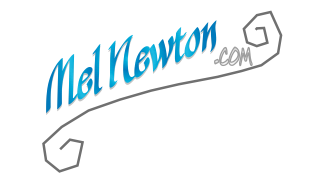
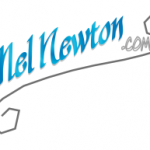
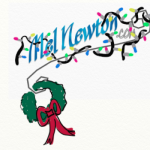
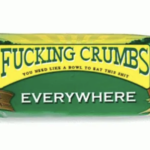

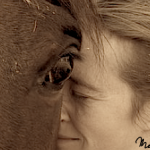
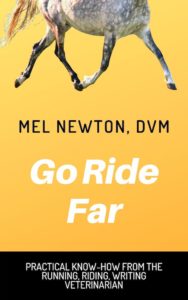



Wow that was really cool to read. Kudos to you for having the foresight to write that all down “so long ago”. Maybe I’ve missed this (been following you from the beginning) but is there a reason why you didn’t go to a strictly large animal practice??
I tried to do enough equine medicine so that I could treat my own and do some simple trauma and colic triage stuff. But, I knew that if I saw horses all day (many of which were not going to be civilized) I was going to hate horses and not want to spend time with my own after work. This was beyond the concerns of whether I would have free time or the finances to own my own horses doing equine. So instead I mostly work small animal and I basically don’t enjoy dogs any more. Large animal (food animal) clinical practice wasn’t anything I considered – that would have been an entry to go back into public health.
I admire your sense of self, and specifically your wisdom. You appear to have known from a young age how to set good boundaries for others and yourself by maintaining an awareness of what serves you and what does not. There is a lot that you contribute to the growth of others by continuing with your blog, even when you feel you are cleaning up your archives of old material.